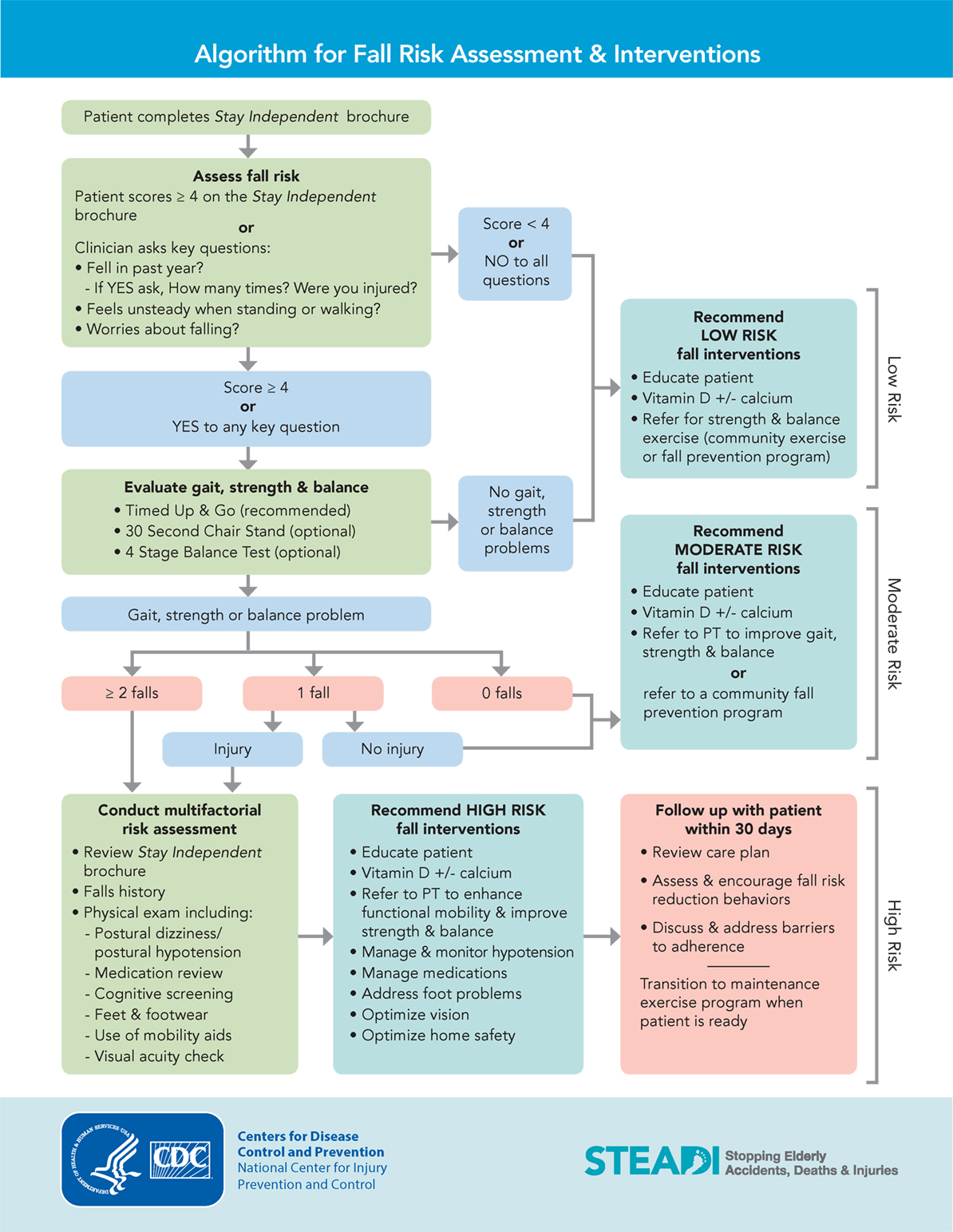Indicators on Dementia Fall Risk You Should Know
Indicators on Dementia Fall Risk You Should Know
Blog Article
The Definitive Guide for Dementia Fall Risk
Table of ContentsThe Single Strategy To Use For Dementia Fall RiskThe Ultimate Guide To Dementia Fall Risk7 Simple Techniques For Dementia Fall RiskExcitement About Dementia Fall RiskGetting The Dementia Fall Risk To Work
You may be worried due to the fact that you've had a loss prior to or due to the fact that you have actually observed you're starting to really feel unstable on your feet. You might have discovered modifications to your health, or just really feel like you're slowing down a little. Whatever the reason, it isn't unusual to become mindful and shed self-confidence, and this can stop you doing things you utilized to do and make you really feel extra isolated.If you've had a loss or you've started to feel unstable, inform your medical professional also if you feel fine or else. Your physician can inspect your balance and the means you walk to see if enhancements can be made. They may have the ability to refer you for a drops threat evaluation or to the falls prevention solution.
This details can be gotten through interviews with the person, their caretakers, and an evaluation of their medical documents. Begin by asking the individual concerning their history of drops, consisting of the regularity and scenarios of any current falls. Dementia Fall Risk. Ask about any kind of mobility troubles they might experience, such as unsteady or trouble walking
Conduct a complete testimonial of the person's medications, paying specific interest to those known to enhance the risk of drops, such as sedatives or medications that reduced high blood pressure. Identify if they are taking several medications or if there have actually been recent adjustments in their medication routine. Examine the individual's home setting for prospective threats that could enhance the risk of falls, such as inadequate illumination, loosened rugs, or lack of grab bars in the restroom.
The Single Strategy To Use For Dementia Fall Risk
Overview the person with the loss threat assessment form, explaining each inquiry and videotaping their reactions properly. Calculate the overall danger score based on the feedbacks given in the assessment kind.
Routinely keep track of the individual's progress and reassess their danger of falls as required. Offer ongoing education and support to advertise safety and security and minimize the danger of falls in their daily living activities.
Many research studies have shown that physical treatment can help to decrease the danger of falling in grownups ages 65 and older. In a new research study (that looked at drops danger in women ages 80 and older), researchers computed the financial influence of picking physical therapy to avoid drops, and they discovered that doing so conserves $2,144, consisting of all the hidden prices of your time, pain, missed life events, and the dollars spent for solutions.
Unknown Facts About Dementia Fall Risk
Examining your heart price and high blood pressure dimensions at remainder and while you alter positions (from resting or existing to standing). A simple examination of your thinking (cognitive) capabilities. Assessing your balance, toughness, and strolling ability. A basic vision test. Evaluating your feet and shoes. A home security evaluation. Based on the i was reading this examination results, your physical specialist will certainly create a strategy that is tailored to your certain requirements.
Older grownups who have problem walking and speaking at the very same time go to a greater risk of falling. Dementia Fall Risk. To aid raise your safety during everyday activities, your physiotherapist may develop a training program that will challenge you to keep standing and walking while you do an additional job. Instances include strolling or standing while counting backwards, having a discussion, or carrying a bag of groceries
Establish goals for increasing their physical activity. Work out a lot more to increase their toughness and equilibrium. These programs often are led by volunteer instructors.
Getting The Dementia Fall Risk To Work

Measles, or rubeola, is a very transmittable, severe viral infectious disease triggered by the measles infection. Some people consider measles as simply a breakout and high temperature that improves in a couple of days; nevertheless, measles can create significant health difficulties, especially in youngsters younger than 5-years-old. The most effective protection versus measles is the measles, mumps, and rubella (MMR) vaccine.
Autumns are a common reason of injury among older grownups. According to the CDC, in one year alone, fall-related injuries contributed to over $50 billion in clinical costs (Dementia Fall Risk). In hospital setups, older grownups are at specifically high danger of drops due to the fact that their lowered flexibility from being constrained to an area or bed.
Some Known Questions About Dementia Fall Risk.

She has a case history of seizure problem and high blood pressure. She is getting an IV infusion and taking Gabapentin and Lasix. She has no history of falls, her stride is constant, and she invalidates with no problems. The previous registered nurse states that she requires support to the bathroom when she needs to go.
Examples of usual autumn interventions/measures consist of: Guaranteeing a person's necessary things are available. Placing the patient's bed rails up with the alarm on. Assisting a person while they're rising from bed. Past understanding exactly how to make use of the Johns Hopkins Autumn Risk Assessment Device, it is essential that centers include its use right into a much more thorough loss prevention strategy.
Report this page